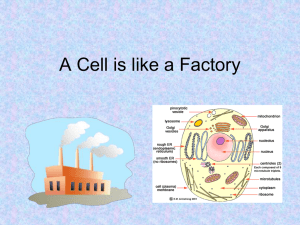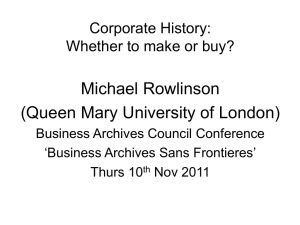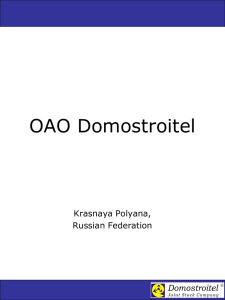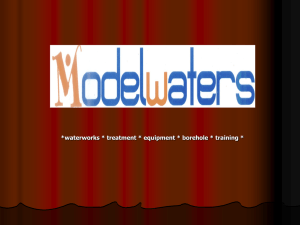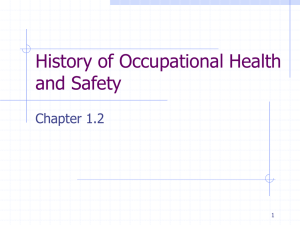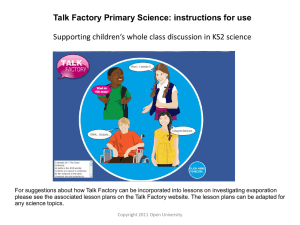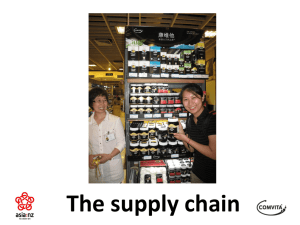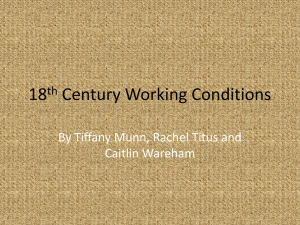19_abrahamsson_position
advertisement
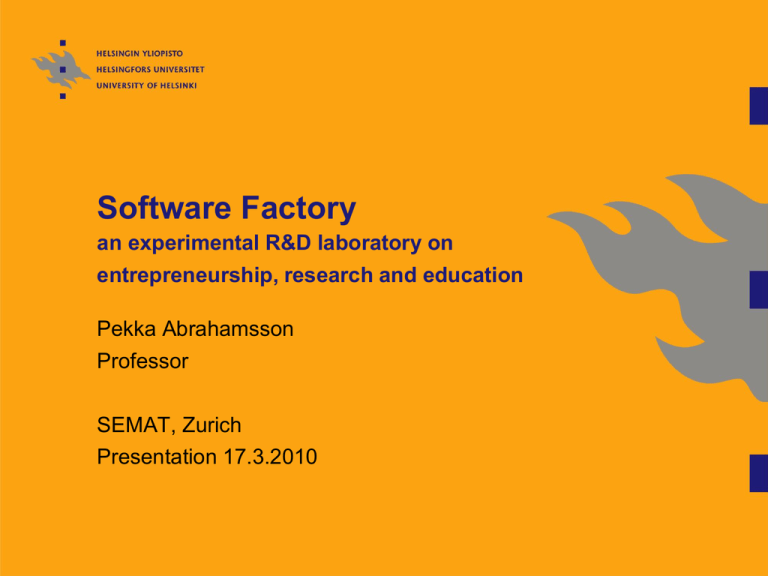
Software Factory an experimental R&D laboratory on entrepreneurship, research and education Pekka Abrahamsson Professor SEMAT, Zurich Presentation 17.3.2010 CONTENTS • Overview • Intro to the three facets of the Software Factory • Entrepreneurship • Research • Education • Software Factory Course details • MicroVC concept • Xtra slides • The plans for the grand opening Overview: Challenges • Technology develops rapidly in the field of software engineering. • Software education has had hard time in keeping up with current developments. • Often there is a gap between the research, education and practice, which all seem to travel in their own pace. • Software Factory creates a common, co-operative platform for software business, basic & applied software engineering research and education. Three Functions of Software Factory at UH Software factory is an experimental software lab aiming to stimulate Growth business: highexpectation entrepreneurships (Curley, Formica 2009) Cross-disciplinary research: Both basic and applied, empirical software research Education: Empirical computational thinking (Johnson 2009) Software factory physically is located at Univ. of Helsinki but operates in global space. Satellite hubs are being set-up in several locations globally. Software Factory Use Cases INTEREST GROUP Learn Share Grow Companies • Global Software Development • • Open Innovation future skill and competence needs • business-driven prototypes Investors • software product development • • prospects expectations • spin-offs Researchers • software business • experiments • Cloud software competences Students • professional skills (e.g., teamwork) • • teaching material lessons learnt • careers Business facet: High Expectation Entrepreneurship • A 7-week software business prototype engine • A series of experiments running 2010-2013 under the Cloud Software research program • First business prototype in business driven alpha tests by 1.3.2010. • Co-operation with University of Helsinki, Helsinki Univ. of Technology and Metropolia Business facet: High Expectation Entrepreneurship • The backbone of a successful economy is entrepreneurship • Finnish software business lacks high-expectation entrepreneurship start-ups • Software factory targets to stimulate the following spin-offs and business prototypes 2010 • MicroVC: A people/ community driven business angel model for Europe • ScienceBook: A collaboration engine for small groups working together • EuropeToday: A mash-up newspaper print-ready in your printer tray • ChineseMobile: A community service for identifying new mobile services for chinese markets (service available only in chinese) • … You tell us! And let’s implement it! Research facet • Software Factory is designed to operate as a test-platform for novel tools, techniques and methods. • Software Factory is equipped with multiple means to collect data including interview, observation, video/audio (when necessary) and seamless measurements as well. • Each research target has its own research design plan to guide the research work. Preliminary research topics already idenfied • Software Factory is launched with several research goals already identified including: • Bottom-up modeling by Pietu Pohjalainen (PhD) • Ambient user-experience by Timo Jokela (postdoc) • Psychometric measurements & teamwork by Fabian Fagerholm (PhD) • Web-service maintentance by Juha Gustafsson (PhD) • Validity of observation as a means to collect valid software engineering research data by Pekka Abrahamsson Education in Software Factory • While software is a knowledge medium, software development is about learning. • Software Factory, therefore, is ultimately a learning vehicle. It operates at three layers of education: • Software Factory course (8op) • Software Factory integrated to other software courses in University of Helsinki and outiside • PhD training & education Software Factory course • Software Factory course is an intensified course setting where students learn about • Real-life agile development setting with deadlines and deliverables • Teamwork dynamics • Incremental, iterative & continous planning • Integration, testing in web-development • Implementation technologies • As a result of 7 week of work, a concrete business prototype is to be delivered to real markets Software Factory course expectations • Software Factory course is not a traditional course. The course is intense, exciting and full of surprises (like real life). • Software Factory operates four days a week, 6 hours a day (be aware of this!) • Team decides the working hours • Team decides the split up of tasks between different sub-teams • Teams self-organize • This is an advanced course; thus, you use all the skills aqcuired in your studies to perform to meet the hightest expectations
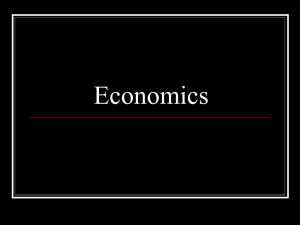
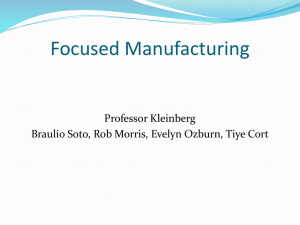
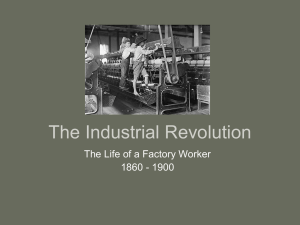
![A Cell is like a Factory[1]](http://s2.studylib.net/store/data/005446661_1-d01b8e928fa376b098eca9080626c037-300x300.png)
